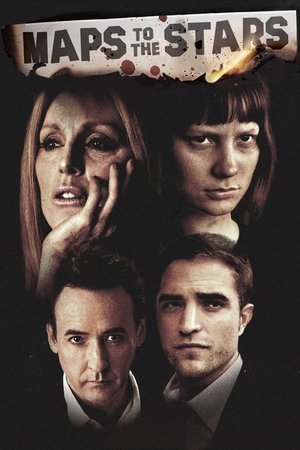Cult Movie Challenge 2018 | 26/52 | David Cronenberg
Agatha Weiss arrives in LA after a multi-day bus ride from Florida. Once there, she meets up with a limo driver named Jerome, who takes her to where child star Benjie Weiss’s house used to be. Benjie visits a terminally ill girl in the hospital who is a big fan of his movie Bad Babysitter. He promises to make a movie of her life, but his agent pushes Benjie on it, and Benjie mocks him for thinking it was real. Back home, Benjie’s mother, Cristina, goes over an upcoming sequel to Bad Babysitter after a long hiatus due to Benjie’s drug addiction.
Benjie’s father, Stafford, walks in, waxing moronic about the Dalai Lama. Stafford is treating famous actress Havana Segrand for psychosexual childhood abuse from her famous mother, Clarise Taggart, using a weird bondage and trigger-based approach, not too dissimilar from Oliver Reed’s in The Brood. Havana returns home and speaks with her agent, Genie, about getting a new assistant. Genie decides to ask Carrie Fisher for some names. Havana obsesses over remaking her mother’s movie, Stolen Waters, but no one is interested in reviving the middling, mostly forgotten 30-year-old film.
At times, Havana imagines she sees her deceased mother at the age she was in Stolen Waters, throwing verbal abuse at Havana. While Benjie sleeps, he is visited by the ghost of the terminally ill girl he visited, wearing a veil like a bride and quoting Éluard’s Liberté (in English). Cut to Agatha, taking handfuls of medication for the severe burns on her face and body, the latter of which she covers up with black gloves. Carrie Fisher meets with Havana and suggests that a girl she met on Twitter, Agatha, be her assistant.
The film follows these characters as they try to overcome their past and find success.
I’ve seen a handful of movies about Hollywood. This one is more inside baseball than most, with how everyone talks about celebrities they know, business opportunities, movie revenues, and so on. Even the child actors are full of references beyond their years (Benjie, for example, casually mentions The Snake Pit). Still, their jaded sensibility is undercut by their childish understanding of the wild they’ve come up in.
The movie also references many real actors, producers, and directors (and the Dalai Lama). Most of it feels true, such as discussions about sick producers, including one named Harvey, but it doesn’t really matter. To most audiences, it’s white noise that further shows how divorced from reality these characters are.
What adds a layer of oddness is the Greek tragedy undercurrent — incest, betrayal, visions of ghosts, and more that I won’t spoil. That, blended with the movie’s bleak, black sense of humor, gives the whole film an unreality, as though it’s trying to mythologize the celebrity life. I don’t know if it works, but it’s a fascinating blend of material.
Like A History of Violence, the violence is rough and unadorned. There isn’t much, but when it’s there, it packs a whallop. Unfortunately, one of those scenes uses some pretty bad CGI — I can get over it, especially in a movie that’s already pretty uncanny, but I’m pretty lenient on bad effects.
Overall, this one took most of its runtime to cohere for me, even though I could see where it was going. I think most viewers will. But it’s the thematic material that helps elevate the movie, even if it’s pretty messy.
Stray Thoughts
- Julianne Moore makes a meal of the role.
- Mia Waiskowska is always good at playing a little weirdo.
- Same for Robert Pattinson, but he doesn’t get a whole lot in this movie.
- John Cusack’s ringtone is unhinged.

